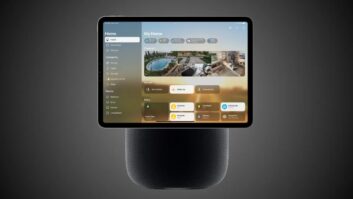
Will Apply Pay ring the cash register for the most profitable company in the world?
If indications are accurate of recent U.S. consumer reaction to Apple’s new payment service, then the company may have a problem on its hands.
Apple Pay, which enables you to use the iPhone 6 and Apple Watch in the same way as a contactless debit card, is encountering some difficulty in convincing consumers that this smart technology is worth the time and effort.
Launched in the United States in October 2014, Apple Pay hasn’t exactly won the hearts and minds of American consumers. Some analysts have estimated that the payment service has attracted less than 2 million regular users so far, and almost two thirds of the top 100 retailers have no plans to launch next year.
An Infoscout survey found that the number of Apple Pay users in the U.S. declined during a three-month period this year, from 15.1 percent in March to 13.1 percent in June.
The survey cited concerns over security, uncertainty over how to use the service, or a bad experience with the technology as the reasons for the decline in the service’s usage. The less-than-stellar U.S. launch of Apple Pay also could be attributed to the fact that most retailers won’t have the NFC technology needed for contactless payments until later this year.
But the biggest challenge Apple faces is convincing people they should be particularly excited about using their phones instead of their wallets. Smartphones play an essential role in mostly everyone’s daily life, but the time saved by grabbing a phone instead of a wallet to pay for stuff isn’t going to create massive consumer demand for Apple Pay on a regular basis. In fact, most payment experiences, especially shopping, will likely see very little impact from Apple Pay.
What Apple and most other contenders in the field have failed to realize is that the real attraction to mobile technology is the new level of freedom it brings, with more and more tasks now accessible anytime, anywhere. They have taken a surprisingly narrow view by limiting mobiles to being just another way of paying at the cash register.
Instead, mobile payments should be viewed as an opportunity to completely change the way we shop. Why should you spend your time waiting in lines to present your phone at a cash register when you could easily buy the product on the spot anywhere in the store – or passing by the window display, waiting for the bus, or literally anywhere else? Until this level of ubiquity and freedom becomes standard, mobile payments will remain a novelty for most people.
The future of mobile payments belongs to those companies that will actually change our day-to-day lives. Platforms, like PowaTag, that can turn any medium into a virtual shop, allow people to buy products anywhere in the world with any digital device, and give retailers insight into a person’s shopping habits. That’s the indisputable future of mobile.
Dan Wagner is founder and CEO of Powa Technologies (www.powa.com), an international commerce specialist that creates technologies promoted as enabling a seamless consumer experience across all purchase channels.













